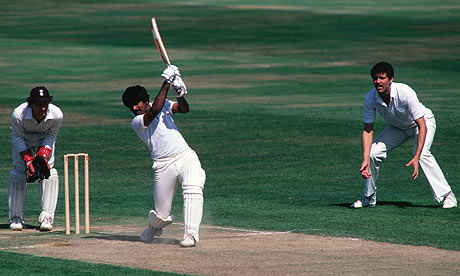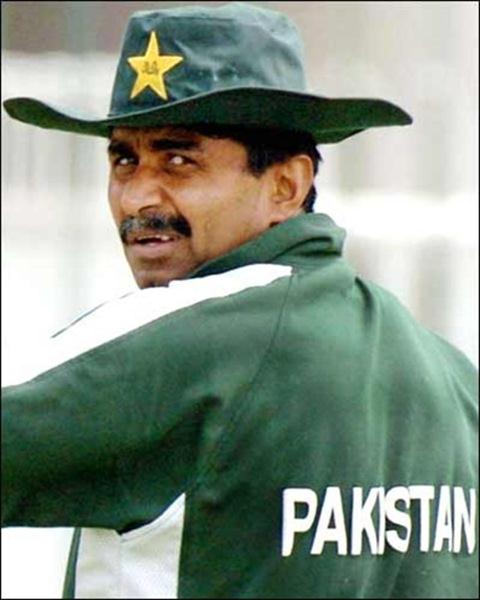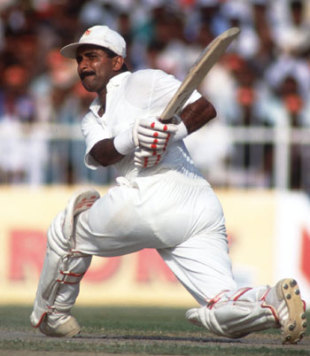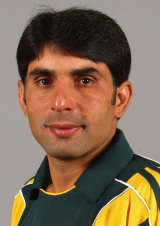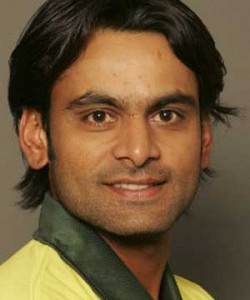Saeed Anwar Biography
Saeed Anwar is a famous Pakistani cricket who played international cricket between 1989 and 2003. Saeed Anwar was born 6 September 1968, Karachi. A left-hander, Anwar is most notable for scoring 194 runs against India in Chennai in 1997. Saeed Anwar graduated from NED University in Karachi in 1989 and is an engineer by profession. Saeed Anwar has drastically changed his life in order to become a better practicing Muslim.Bayein (left) hath se khelne wale stylish balle bazon ka tzkirah ho to baat Pakistan ke mayah naaz Olympic batsman Saeed Anwar tak zaroor punche gi. Kalayi ki madad se dil aawez stroke kheilne wale is balle baaz se hareef balls khaif raha karte the. Aamir Shohel ke sath in ki jori ko Majid Khan aur Sadiq Muhammad ke baad Pakistan ko milne wala behtareen Olympic pare qarar dia ja skta hai.
Saeed Anwar ke career ka aaghaz mayoos kun tha. 1990-1991 mein West Indies ke khelaf test series chal rahi thi keh Pakistan ke regular opener Rameez Raja
zakhmi ho gaye , in ki jagah Saeed Anwar ko Faisalabad ke doosre test match mein jhok dia gia aur aik aisi khatarnaak pitch par, jo na humwar bounce le rahi thi, Saeed Anwar donon innings mein sifar par out ho gaye. Tahum selectors in se mayoos na huye aur inhein dobara moqa dia gia jis se Saeed Anwar ne pura faida uthaya, yahan tak keh jb vo retired huye to in ka shumar dunya ke saf e awwal ke cricketer mein hota tha. Goya in ke career par yeh filmi sher sadiq aata hai.
Rote huye aate hain sab, hunsta hua jo jaye ga
Vo moqaddar ka sikandar …… jaan e man, kehlaye ga
Saeed Anwar 6 September 1968 ko Karachi mein paida huye. NED University se Computer Science mein Engineering ki digree li aur cricket ki dunya fatah karne nikal khare huye. Vo bunyadi tor par bayein hath se jarhanah andaz mein kheilne wale balle baaz the jab keh kabhi kabhar left arm slow baller ka kirdar bhi nibha lete the. Saeed Anwar ne pehle pehal Maleer jam khana mein shamoolyat ikhtiyar ki, phir 1984-85 mein “KCCA “ ne inhein select kar lia, baad mein inhon ne UBL, ADBP Lahore , National Bank aur Pakistan ki numaindagi ki.
Majestic timing and placement were Saeed Anwar's hallmarks. He was an opener capable of electrifying starts in all cricket through graceful strokeplay rather than brute force. He loved driving through the off side with minimal footwork. He annihilated any bowler offering width outside off stump although he too regularly guided the ball straight into the hands of fourth slip or gully. He first came to prominence as a one-day player but soon achieved equal success in Test cricket. Anwar's fielding was weak, he was injury prone, and his footwork became less assured as his career drew to a close. Opting to take a break from the game after the death of his daughter in August 2001, he was a lesser force when he came back, though he still managed a hundred against India in the 2003 World Cup. His batting prowess on the wane, Anwar finally announced his retirement just before Pakistan's home series against Bangladesh. He held the record for the highest ODI score till Sachin Tendulkar upstaged him, and on his day he was one of the most gracefully compelling players on the international stage.
Saeed Anwar


Saeed Anwar
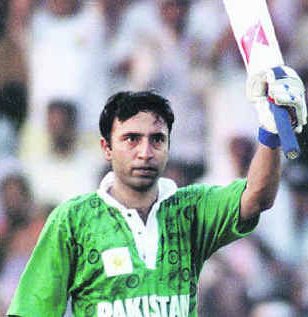

Saeed Anwar


Saeed Anwar


Saeed Anwar


Saeed Anwar


Saeed Anwar


Saeed Anwar


Saeed Anwar


Saeed Anwar









